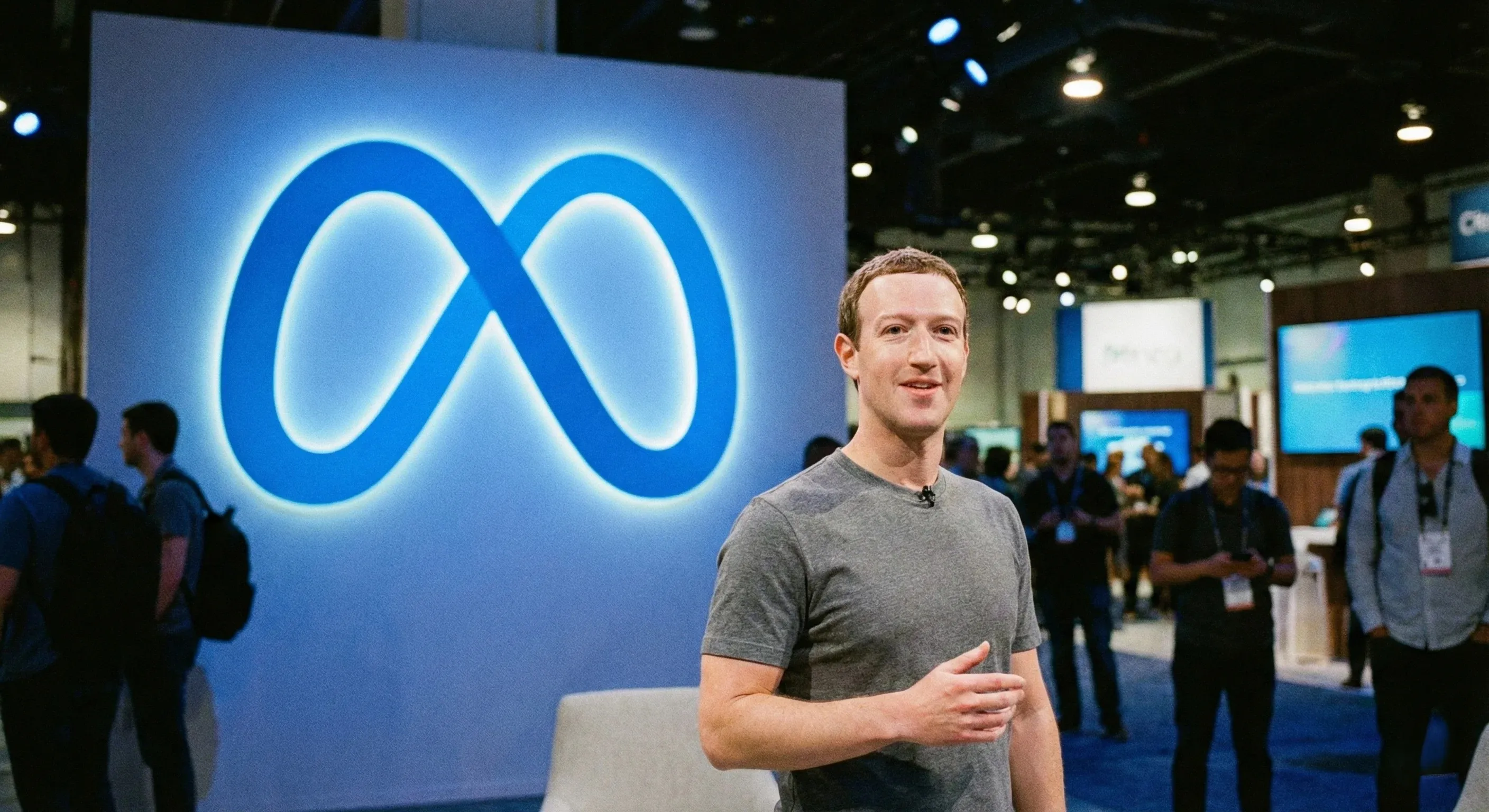Is Meta secretly training its AI on Explicit movies? That's the question buzzing around Silicon Valley after a lawsuit accused Mark Zuckerberg's company of illegally torrenting thousands of Explicit movies films. Meta denies the allegations, claiming the downloads were for "personal use." Let's dive into the details of this bizarre case and what it means for the future of AI and content moderation.
The Allegations: Meta's Secret Porn Stash?
The lawsuit, filed by Strike 3 Holdings and Counterlife Media, alleges that Meta illegally downloaded nearly 2,400 copyrighted Explicit films. The plaintiffs claim that Meta began torrenting their content as far back as 2018, using IP addresses linked to the company, including one residential IP address of a Meta employee.
The suit further alleges that Meta engaged in "methodical and persistent distribution" of these works, potentially even to minors. The plaintiffs argue that the patterns of data movement suggest "non-human patterns," implying the content was being acquired for AI training data.
Why Explicit Films for AI Training?
The lawsuit suggests that Explicit films offer unique benefits for AI training, specifically for video generation. According to the suit, these films provide:
- Natural, human-centric imagery: Showing parts of the body not found in regular videos.
- Unique human interactions and facial expressions: Capturing nuances difficult to replicate.
- Extended scenes without director cuts: Enabling AI models to experience continuity.
In essence, the plaintiffs believe Meta might be using their content to train AI video generators, like Meta Movie Gen, to realistically recreate human movement and interactions.
The Potential Cost
Strike 3 and Counterlife are seeking damages of up to $150,000 per stolen video, potentially reaching a total of $359 million. They also demand the deletion of all pirated content and an injunction to prevent Meta from future torrenting activities.
Meta's Defense: "Bogus" Claims and Personal Use
Meta has vehemently denied the allegations, calling them "bogus." In a motion to dismiss the lawsuit, Meta argues that Strike 3 is relying on "guesswork and innuendo" and that there's no evidence the company directed or was even aware of the illegal activity.
Meta's spokesperson stated that the flagged downloads spanned seven years, starting in 2018, while Meta's AI efforts researching Multimodal Models and Generative Video began about four years later. This timeline, Meta argues, makes it implausible that the downloads were intended for AI training.
Furthermore, Meta points out that its terms prohibit generating Explicit content, contradicting the idea that such materials would be useful for AI training. The company claims the downloads were for "personal use" by employees, although they didn't elaborate further.
Expert Tip: When a company's IP address is used for illegal activity, it can be difficult to determine who is responsible. Companies often have policies in place to prevent such activity, but enforcement can be challenging.
The Implications: AI, Copyright, and Content Moderation
This lawsuit raises several important questions about AI, copyright, and content moderation:
- Copyright Infringement: Can companies be held liable for copyright infringement committed by their employees on company networks?
- AI Training Data: Where does AI training data come from, and what are the ethical and legal implications of using copyrighted material?
- Content Moderation: How can social media platforms effectively moderate content and prevent the spread of illegal or harmful material?
Meta has faced controversy in the past regarding content moderation, including allegations of recommending violent content to Instagram users. In February 2025, Meta apologized after violent videos showing people being killed or badly injured were recommended to Instagram users, even with the "Sensitive Content Control" set to its highest moderation setting. This incident raises concerns about Meta's ability to effectively moderate content and prevent the spread of harmful material.
Zuckerberg's Stance on Content Moderation
Mark Zuckerberg has expressed a desire to reduce censorship on Meta's platforms. In January 2025, he stated that he intends to dial back sensitive content filters across Instagram, Facebook, and Threads. While acknowledging this policy might lead to more "bad stuff" getting through, Zuckerberg believes it will also reduce the number of innocent people's posts and accounts that are accidentally taken down. This shift in policy has been interpreted by some as an attempt to curry favor with political figures.
The Future: What's Next for Meta and AI Ethics?
The Meta porn torrenting lawsuit is ongoing, and its outcome could have significant implications for the tech industry. If Meta is found liable, it could face substantial damages and be forced to change its AI training practices. The case also highlights the need for greater transparency and accountability in the development and deployment of AI technologies.
As AI continues to evolve, it's crucial to address the ethical and legal challenges it presents. This includes ensuring that AI training data is obtained legally and ethically, and that AI systems are used responsibly and in accordance with societal values.
Whether Meta was secretly building an AI porn empire or simply dealing with employees' personal downloads, this case serves as a reminder of the complex issues surrounding AI, copyright, and content moderation in the digital age.
Key Takeaway: The Meta lawsuit highlights the importance of ethical AI development and the need for clear guidelines on copyright and content moderation.
Only time will tell how this case unfolds, but one thing is certain: the debate over AI ethics and responsible technology development is far from over.

